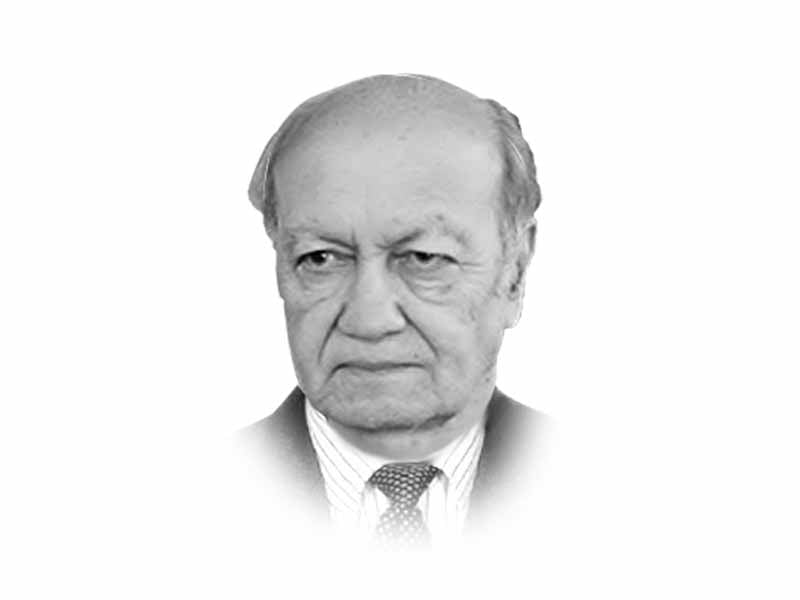
The unceremonious exit of President Bashar Al-Assad after fifty years of the Assad dynasty's iron rule is a clear demonstration of how relieved the majority of Syrian felt over his departure. President Bashar Al-Assad's sudden forced exit by a lightning movement led by a rebel group was an extraordinary event that will have far-reaching consequences not only for Syria, a strategically important country, but for the whole of Middle East. A raging civil war in Syria since 2011 has been disastrous for the country giving rise to ISIS and other extremist groups that hold large areas where government writ is absent. The civil uprising leading to a full-fledged war began when Assad's regime tried to crush a mass pro-democracy movement against it killing and imprisoning thousands instead of yielding to the people's justifiable demand of establishing a representative government. Assad's forces have indulged in the worst human rights violations and brutal treatment against civilians throughout the 14-year civil war. He even had no qualms about his armed forces using chemical weapons against their own people.
Regional and global powers are engaged in proxy wars to influence events in Syria. War-like conditions have led to millions of Syrians being displaced finding refuge in other countries. The United States, European Union, Turkey and Jordan have all advised Assad to step down. But Assad remained adamant that he would stick to power even if it entailed killing and maiming his own people. But now that he has been driven out by a mass movement and sought asylum in Russia, his salvation lies in spending the rest of his life outside his country. Both Russia and Iran were the real supporters of the Assad regime but they must be realising that they were pursuing policies that went against the genuine interests of the people that could not be sustained for long.
President Assad, like his predecessors, was a fearsome dictator whose suffocating rule deprived the people of their basic liberties and freedom of action. It was not surprising that the Syrian people came out on the streets in thousands to celebrate their new won freedom. Clearly, the Assad regime was one of the worst examples of dictatorial rule. The people had no voice or say in the choice of their rulers and any opposition to the regime was ruthlessly suppressed. Those who would stand up against the oppression were sentenced and sent to prison where they would languish for years whilst their families would remain under strict surveillance. The exuberance of the celebrating crowds – who underwent such suffering and were denied their basic rights for more than half a century – on the streets at the dictator's ouster was only natural and spontaneous response.
The people are now looking forward to a regime where they would be heard and their problems addressed. For a country – which had been under a brutal dictatorship where dissenting voices were ruthlessly suppressed and democratic instincts were choked – starting afresh and moving towards a representative government will be a great challenge. Democratic structures have to be created by the interim government and elections for the parliament and the President are scheduled to be held in the coming months. It will not be easy as democratic structures and culture have been aliening to the Syrian people and government functionaries for five decades. And there may still be elements within the government and the parliament that had benefited in the Assad regime and could be conspiring to make a comeback. But what gives hope is that freedom of speech and the ability of the people to exercise their right is a natural phenomenon. Any return to the past will be fiercely resisted.
Syria has traditionally been a leading country. However, fifty years of suppression has been a period when the state machinery deliberately suppressed freedom and democratic instincts. The present leadership's primary task is to ensure a smooth transition to a government that draws its legality from national elections.
The happenings in Syria will be transformation for the Middle East. This is one region where monarchies still have a strong hold over power. Television and social media have already influenced the thinking of the people but governments place all forms of restrictions and even monitor conversation. The dynamics of the region is changing fast and it is in the interest of the rulers to adjust and calibrate their policies accordingly.
In case of Syria's smooth transition to democratically elected government, it would greatly influence the thinking of the masses in the Middle East and could be a precursor of change towards democratic rule of the Muslim kingdoms. The new leadership will have to guard against conspiracies as the change has certainly pushed the well-entrenched conservative forces opposed to democratic rule on the defensive. It is clearly an event that will reconstruct the region and as an analysis in The New York Times commented will be an extension or follow up of the Hamas – led attack on Israel.
The happenings in Syria will also demand that global powers – the US, Russia, China and the European Union – adjust and calibrate their policies toward the Middle East accordingly. Israel would be closely monitoring events in Syria for it could influence the political dynamic of the region and may not be to its liking. Regrettably, there is not sufficient realisation among the Muslim countries of the Middle East of the strength that a country derives by being democratic. Selfish interests continue to preclude promoting national interest.
But certainly, the events in Syria and the confrontation of Israel with Hamas and other forces are already remaking the region. It is for the leadership of Arab and other Muslim countries to redraw their policies to emerge stronger and be in a better position to benefit from these happenings rather than merely reacting to them. The true test of leadership lies in drawing lessons and benefiting from the rapid changes taking place in the region.



1734092451-0/selena-(6)1734092451-0-165x106.webp)










COMMENTS
Comments are moderated and generally will be posted if they are on-topic and not abusive.
For more information, please see our Comments FAQ